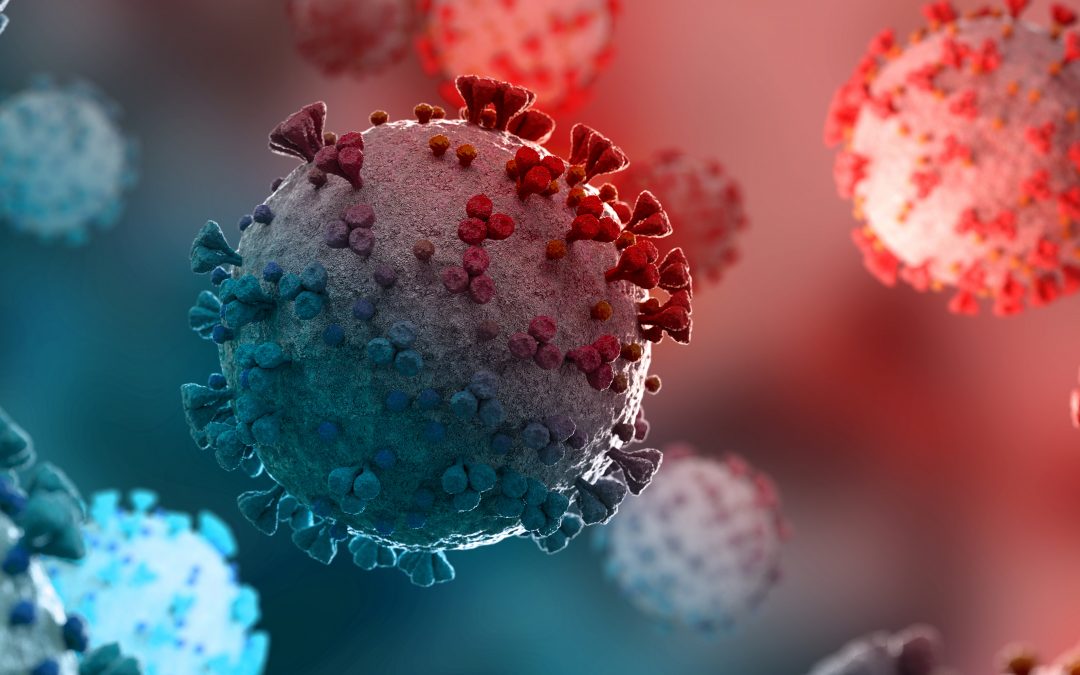The covid-19 pandemic has made an impact on nearly every household in one way or another. Many people are concerned for their health and scientists are still learning about the behavior of the disease. What we’ve learned so far is that the virus can spread rapidly and is most frequently contracted by breathing or absorbing tiny water droplets containing the virus through the nose and mouth.
While the virus has been primarily described as a respiratory disease, it can present itself in ways that are similar to that of allergies, a sinus infection, or a common cold. Despite similarities, there are differences in symptoms that we’ll discuss to help you identify what may be causing discomfort.
Symptoms of Coronavirus
While we’re still learning about covid-19 and it’s variants, coronavirus is most commonly spread through coughing, sneezing, and close personal contact. Symptoms typically appear within 2 to 14 days of exposure and can vary in severity from asymptomatic to severe.
The most common symptoms of coronavirus are:
- Cough
- Fever
- Shortness of breath
- Loss or change to smell or taste
- Fatigue
- Sore throat
- Headaches
Lesser common symptoms of coronavirus include:
- Muscle and body aches
- Congestion or runny nose
- Nausea or vomiting
- Diarrhea
- Severe chest tightness
- Breathing problems
Symptoms of Allergies
The human body experiences allergies as a reaction to allergens that cause the release of histamines. Histamines are what cause inflammation and itching, which often leads to sneezing, swelling, and a stuff or runny nose.
Symptoms of allergies include:
- Cough
- Sneezing
- Stuffy or runny nose
- Headache
- Ear congestion
- Watery or itchy eyes
- Itchy or irritated throat
- Postnasal drainage
- Fatigue
Differences Between Allergies & Covid-19
Allergies are developed within an individual and are not contagious whereas covid-19 is contagious and can be transmitted between people.
There is some overlap between symptoms of the two, but there are several key differences that can help you identify if your body is battling allergies or coronavirus.
Fever
Typically, allergies do not cause a fever. Fevers are often a sign of an infection of some sort.
Itchiness
Coronavirus does not usually cause any itchy. Therefore, itchy eyes, nose, or throat are not typical symptoms of coronavirus.
Loss of Taste or Smell
Allergies can cause congestion, and congestion can affect taste and smell. However, the covid-19 virus has had significant reports of extreme loss of taste and smell without the congestion.
When determining allergies or covid-19, it’s important to consider the following.
- People with allergies often have an issue with seasonal allergies
- Allergy symptoms tend to last longer than viral symptoms
- Allergies typically respond to antihistamines in allergy medications, viruses do not.
Get Help and Find Resources
If you’re suffering from symptoms and are concerned about the cause, it’s vital to contact your physician. Medical professionals have the most up-to-date information on the virus and will be able to help.
Additionally, the CDC has developed a helpful Self-Checker Quiz to help you understand any symptoms you may be facing and determine any potential coronavirus exposure.

